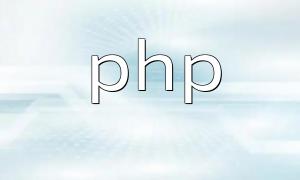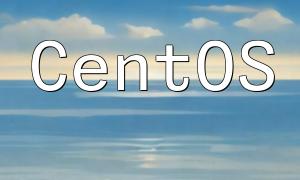PHP, as a widely used programming language, is extensively applied in web development. To enhance the performance and stability of PHP applications, developers need to gain an in-depth understanding of its underlying principles. This article focuses on PHP's memory management and resource optimization techniques, helping developers improve PHP program execution efficiency.
Memory management is one of the key factors for optimizing PHP program performance. PHP's memory management includes memory allocation and reclamation.
PHP uses a memory pool to manage memory allocation. The memory pool is a pre-allocated block of memory created when PHP starts execution. When PHP scripts require memory during execution, PHP allocates a sufficient block of memory from this pool.
PHP's memory reclamation relies on its garbage collector. The garbage collector uses reference counting and circular reference detection algorithms. When a variable’s reference count drops to zero, PHP automatically reclaims the memory used by that variable. This process is automatic and does not require manual intervention from developers, significantly reducing the risk of memory leaks.
In PHP development, resource optimization is a core technique for improving program performance. Resource optimization includes both code optimization and database optimization.
Effective code optimization can significantly improve program execution efficiency. Below are some common code optimization methods:
Frequent function calls can increase program execution time, so developers should try to minimize unnecessary function calls. Common code can be directly embedded into the main code to avoid repeated calls.
Loops are a basic structure in programming, but excessive iterations can slow down execution. Developers can reduce loop iterations by optimizing algorithms or using suitable data structures, such as hash tables, to avoid unnecessary loops.
Database queries are common operations in PHP programs. Optimizing SQL queries can significantly improve database access efficiency. Developers should use appropriate indexes, optimize query conditions, and more to speed up queries.
The database is a critical component of PHP applications. Below are some common database optimization strategies:
Proper indexing can greatly enhance the efficiency of database queries. Developers should choose the appropriate index columns and types based on the actual query requirements.
Using caching technology, developers can store frequently accessed database query results in memory to avoid repeated queries, greatly improving system performance.
When a database contains a large amount of data, it may be necessary to use sharding to distribute data across multiple databases, improving query efficiency.
By gaining a deep understanding of PHP memory management and resource optimization principles, developers can effectively enhance the performance and stability of their programs. Efficient algorithm design, reasonable memory usage, and database optimization measures are key to improving performance. Continuous learning and practice will help developers master more optimization techniques and improve their PHP development skills.









